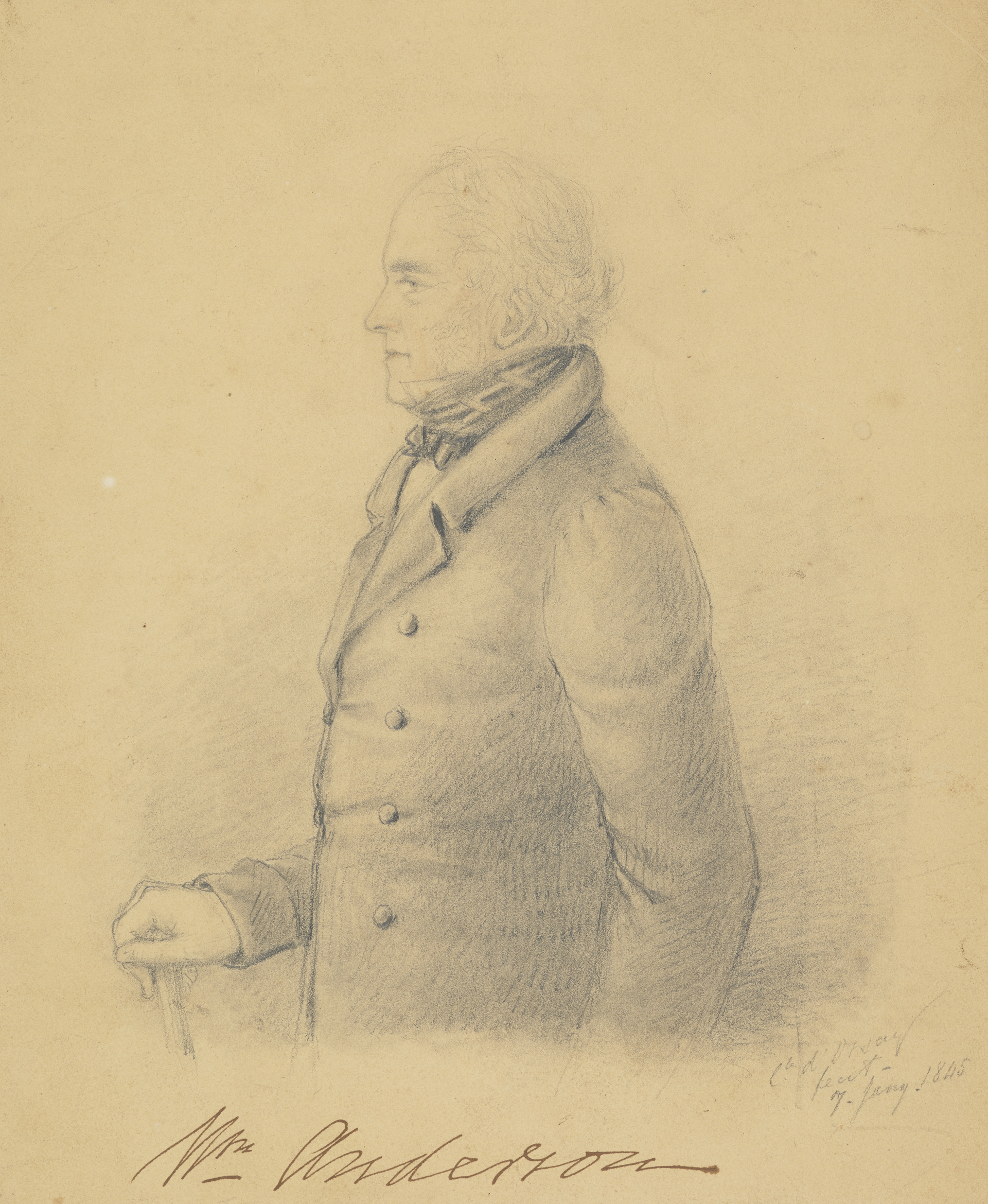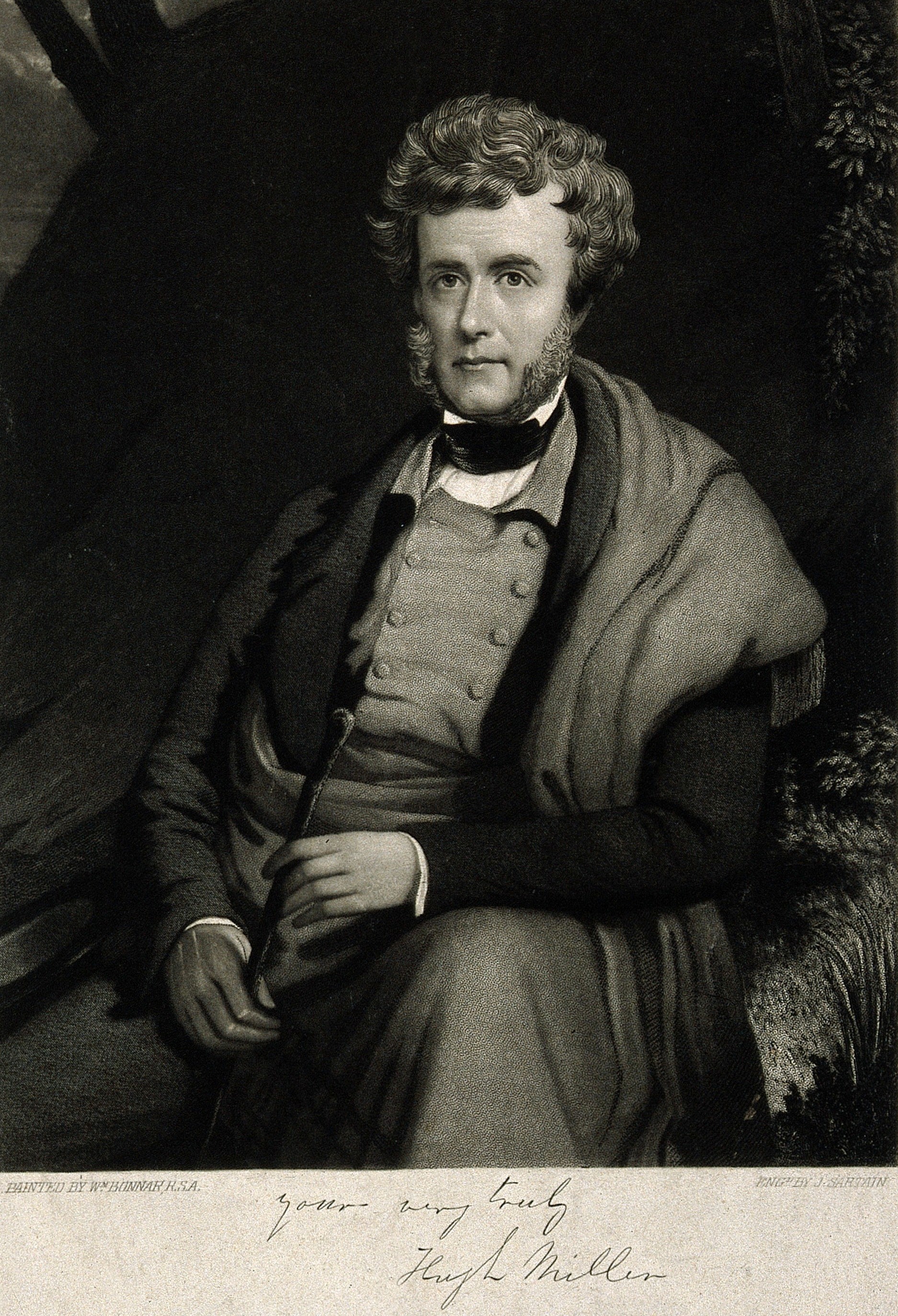|
William Anderson (Scottish Writer)
William Anderson (1805–1866) was a Scottish miscellaneous writer in the departments of history, biography, and science. He was born at Edinburgh and educated there, and placed in a lawyer's office. As an author he published ''Poetical Aspirations''; ''Landscape Lyrics''; ''Popular Scottish Biography''; ''Treasury of Nature, Science, and Art'' and an extensive work widely known as ''The Scottish Nation''. He also assisted for some time in managing Aberdeen Journal, Witness, and Daily Mail newspapers. He died, aged 61. Biography Anderson was born in Edinburgh 10 December 1805. His father was supervisor of excise at Oban, and his mother the daughter of John Williams, author of the 'Natural History of the Mineral Kingdom.' He was thus a younger brother of John Anderson (genealogist, 1789–1832), the historian of the house of Hamilton. After receiving a good education in Edinburgh he became clerk to a Leith merchant, but subsequently entered a lawyer's office in Edinbu ... [...More Info...] [...Related Items...] OR: [Wikipedia] [Google] [Baidu] |
Alfred D'Orsay
Alfred Guillaume Gabriel Grimod d'Orsay, comte d'Orsay (4 September 18014 August 1852) was a French amateur artist, dandy, and man of fashion in the early- to mid-19th century. Biography He was born in Paris, the second son of Albert Gaspard Grimaud, Comte d'Orsay, a Bonapartist general. His mother was Baroness Eleonore von Franquemont, an illegitimate daughter of the Duke of Württemberg and the Italian adventuress Anne Franchi. His elder brother died in infancy. In 1821, he entered the French army of the restored Bourbon monarchy (against his own Bonapartist tendencies), attending the lavish coronation of George IV of the United Kingdom in London that year (staying until 1822) and serving as a Garde du Corps of Louis XVIII. While in London he formed an acquaintance with Charles Gardiner, 1st Earl of Blessington and Marguerite, Countess of Blessington, which quickly ripened into intimacy. Scholars have speculated both that the Countess and d'Orsay had an affair, and that ... [...More Info...] [...Related Items...] OR: [Wikipedia] [Google] [Baidu] |
Hugh Miller
Hugh Miller (10 October 1802 – 23/24 December 1856) was a self-taught Scottish geologist and writer, folklorist and an evangelical Christian. Life and work Miller was born in Cromarty, the first of three children of Harriet Wright (''bap''. 1780, ''d''. 1863) and Hugh Miller (''bap''. 1754, ''d''. 1807), a shipmaster in the coasting trade. Both parents were from trading and artisan families in Cromarty. His father died in a shipwreck in 1807, and he was brought up by his mother and uncles. He was educated in a parish school where he reportedly showed a love of reading. It was at this school that Miller was involved in an altercation with a classmate in which he stabbed his peer's thigh. Miller was subsequently expelled from the school following an unrelated incident. At 17 he was apprenticed to a stonemason, and his work in quarries, together with walks along the local shoreline, led him to the study of geology. In 1829 he published a volume of poems, and soon afterwards ... [...More Info...] [...Related Items...] OR: [Wikipedia] [Google] [Baidu] |
British Male Journalists
British may refer to: Peoples, culture, and language * British people, nationals or natives of the United Kingdom, British Overseas Territories, and Crown Dependencies. ** Britishness, the British identity and common culture * British English, the English language as spoken and written in the United Kingdom or, more broadly, throughout the British Isles * Celtic Britons, an ancient ethno-linguistic group * Brittonic languages, a branch of the Insular Celtic language family (formerly called British) ** Common Brittonic, an ancient language Other uses *''Brit(ish)'', a 2018 memoir by Afua Hirsch *People or things associated with: ** Great Britain, an island ** United Kingdom, a sovereign state ** Kingdom of Great Britain (1707–1800) ** United Kingdom of Great Britain and Ireland (1801–1922) See also * Terminology of the British Isles * Alternative names for the British * English (other) * Britannic (other) * British Isles * Brit (other) * B ... [...More Info...] [...Related Items...] OR: [Wikipedia] [Google] [Baidu] |
19th-century British Journalists
The 19th (nineteenth) century began on 1 January 1801 ( MDCCCI), and ended on 31 December 1900 ( MCM). The 19th century was the ninth century of the 2nd millennium. The 19th century was characterized by vast social upheaval. Slavery was abolished in much of Europe and the Americas. The First Industrial Revolution, though it began in the late 18th century, expanding beyond its British homeland for the first time during this century, particularly remaking the economies and societies of the Low Countries, the Rhineland, Northern Italy, and the Northeastern United States. A few decades later, the Second Industrial Revolution led to ever more massive urbanization and much higher levels of productivity, profit, and prosperity, a pattern that continued into the 20th century. The Islamic gunpowder empires fell into decline and European imperialism brought much of South Asia, Southeast Asia, and almost all of Africa under colonial rule. It was also marked by the collapse of the large ... [...More Info...] [...Related Items...] OR: [Wikipedia] [Google] [Baidu] |
19th-century Scottish Historians
The 19th (nineteenth) century began on 1 January 1801 (Roman numerals, MDCCCI), and ended on 31 December 1900 (Roman numerals, MCM). The 19th century was the ninth century of the 2nd millennium. The 19th century was characterized by vast social upheaval. Slavery was abolitionism, abolished in much of Europe and the Americas. The Industrial Revolution, First Industrial Revolution, though it began in the late 18th century, expanding beyond its British homeland for the first time during this century, particularly remaking the economies and societies of the Low Countries, the Rhineland, Northern Italy, and the Northeastern United States. A few decades later, the Second Industrial Revolution led to ever more massive urbanization and much higher levels of productivity, profit, and prosperity, a pattern that continued into the 20th century. The Gunpowder empires, Islamic gunpowder empires fell into decline and European imperialism brought much of South Asia, Southeast Asia, and almost ... [...More Info...] [...Related Items...] OR: [Wikipedia] [Google] [Baidu] |
19th-century Scottish Poets
The 19th (nineteenth) century began on 1 January 1801 ( MDCCCI), and ended on 31 December 1900 ( MCM). The 19th century was the ninth century of the 2nd millennium. The 19th century was characterized by vast social upheaval. Slavery was abolished in much of Europe and the Americas. The First Industrial Revolution, though it began in the late 18th century, expanding beyond its British homeland for the first time during this century, particularly remaking the economies and societies of the Low Countries, the Rhineland, Northern Italy, and the Northeastern United States. A few decades later, the Second Industrial Revolution led to ever more massive urbanization and much higher levels of productivity, profit, and prosperity, a pattern that continued into the 20th century. The Islamic gunpowder empires fell into decline and European imperialism brought much of South Asia, Southeast Asia, and almost all of Africa under colonial rule. It was also marked by the collapse of the large S ... [...More Info...] [...Related Items...] OR: [Wikipedia] [Google] [Baidu] |
Journalists From Edinburgh
A journalist is an individual that collects/gathers information in form of text, audio, or pictures, processes them into a news-worthy form, and disseminates it to the public. The act or process mainly done by the journalist is called journalism. Roles Journalists can be broadcast, print, advertising, and public relations personnel, and, depending on the form of journalism, the term ''journalist'' may also include various categories of individuals as per the roles they play in the process. This includes reporters, correspondents, citizen journalists, editors, editorial-writers, columnists, and visual journalists, such as photojournalists (journalists who use the medium of photography). A reporter is a type of journalist who researches, writes and reports on information in order to present using sources. This may entail conducting interviews, information-gathering and/or writing articles. Reporters may split their time between working in a newsroom, or from home, and going out t ... [...More Info...] [...Related Items...] OR: [Wikipedia] [Google] [Baidu] |
1866 Deaths
Events January–March * January 1 ** Fisk University, a historically black university, is established in Nashville, Tennessee. ** The last issue of the abolitionist magazine '' The Liberator'' is published. * January 6 – Ottoman troops clash with supporters of Maronite leader Youssef Bey Karam, at St. Doumit in Lebanon; the Ottomans are defeated. * January 12 ** The ''Royal Aeronautical Society'' is formed as ''The Aeronautical Society of Great Britain'' in London, the world's oldest such society. ** British auxiliary steamer sinks in a storm in the Bay of Biscay, on passage from the Thames to Australia, with the loss of 244 people, and only 19 survivors. * January 18 – Wesley College, Melbourne, is established. * January 26 – Volcanic eruption in the Santorini caldera begins. * February 7 – Battle of Abtao: A Spanish naval squadron fights a combined Peruvian-Chilean fleet, at the island of Abtao, in the Chiloé Archipelago of southern Chile. * February 13 � ... [...More Info...] [...Related Items...] OR: [Wikipedia] [Google] [Baidu] |
1805 Births
Eighteen or 18 may refer to: * 18 (number), the natural number following 17 and preceding 19 * one of the years 18 BC, AD 18, 1918, 2018 Film, television and entertainment * ''18'' (film), a 1993 Taiwanese experimental film based on the short story ''God's Dice'' * ''Eighteen'' (film), a 2005 Canadian dramatic feature film * 18 (British Board of Film Classification), a film rating in the United Kingdom, also used in Ireland by the Irish Film Classification Office * 18 (''Dragon Ball''), a character in the ''Dragon Ball'' franchise * "Eighteen", a 2006 episode of the animated television series ''12 oz. Mouse'' Music Albums * ''18'' (Moby album), 2002 * ''18'' (Nana Kitade album), 2005 * '' 18...'', 2009 debut album by G.E.M. Songs * "18" (5 Seconds of Summer song), from their 2014 eponymous debut album * "18" (One Direction song), from their 2014 studio album ''Four'' * "18", by Anarbor from their 2013 studio album '' Burnout'' * "I'm Eighteen", by Alice Cooper common ... [...More Info...] [...Related Items...] OR: [Wikipedia] [Google] [Baidu] |
Glasgow Daily Mail
Glasgow ( ; sco, Glesca or ; gd, Glaschu ) is the most populous city in Scotland and the fourth-most populous city in the United Kingdom, as well as being the 27th largest city by population in Europe. In 2020, it had an estimated population of 635,640. Straddling the border between historic Lanarkshire and Renfrewshire, the city now forms the Glasgow City Council area, one of the 32 council areas of Scotland, and is governed by Glasgow City Council. It is situated on the River Clyde in the country's West Central Lowlands. Glasgow has the largest economy in Scotland and the third-highest GDP per capita of any city in the UK. Glasgow's major cultural institutions – the Burrell Collection, Kelvingrove Art Gallery and Museum, the Royal Conservatoire of Scotland, the Royal Scottish National Orchestra, Scottish Ballet and Scottish Opera – enjoy international reputations. The city was the European Capital of Culture in 1990 and is notable for its architecture, culture, ... [...More Info...] [...Related Items...] OR: [Wikipedia] [Google] [Baidu] |
Edinburgh Witness
''Witness'' was an evangelical Evangelicalism (), also called evangelical Christianity or evangelical Protestantism, is a worldwide Interdenominationalism, interdenominational movement within Protestantism, Protestant Christianity that affirms the centrality of being "bor ... newspaper established in 1840 by Scotland, Scottish geologist and writer Hugh Miller. Robert Smith Candlish, Robert Candlish was instrumental in establishing Miller as the editor. He continued to edit the paper at an office on the Royal Mile in Edinburgh until his suicide in December 1856. He was the principal contributor to the publication, averaging over 10,000 words a week. William Anderson (Scottish writer), William Anderson was sub-editor as was James Aitken Wylie. References Presbyterianism in Scotland Newspapers established in 1840 Christian magazines 1840 establishments in Scotland {{Scotland-newspaper-stub ... [...More Info...] [...Related Items...] OR: [Wikipedia] [Google] [Baidu] |






.jpg)

